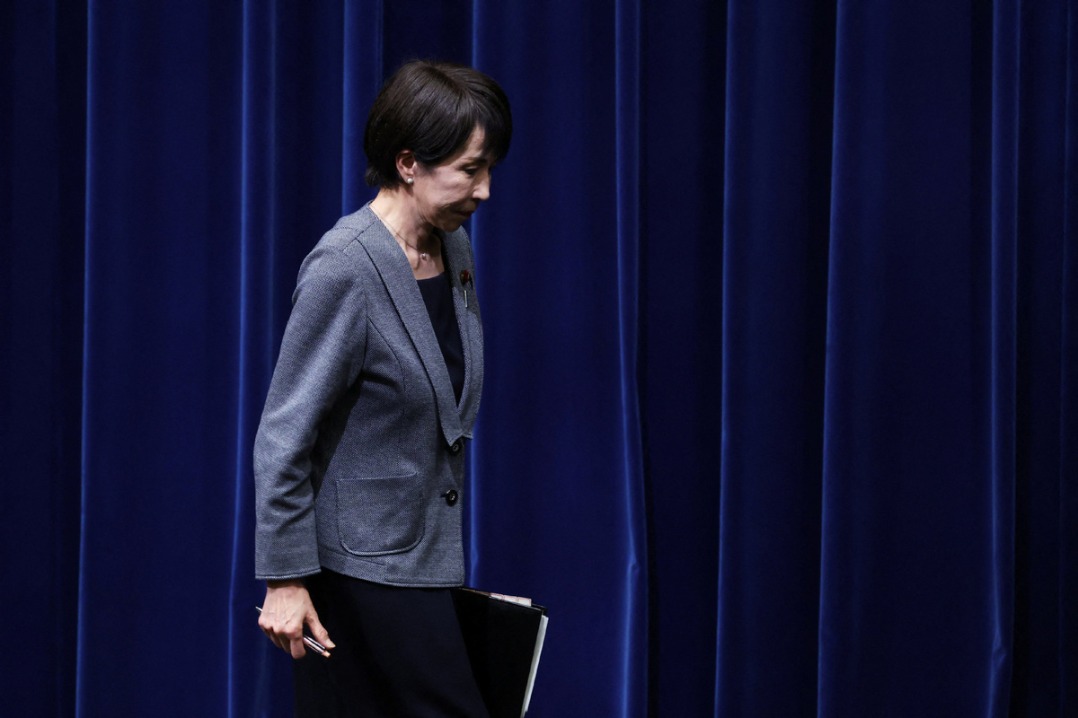Politicians, media perpetuating Islamophobia in the US


Wadea Al Fayoume, a six-year-old Palestinian-American boy, had a happy life with his parents in Chicago. He loved playing ball games with his friends, swinging in the park, and learning about the solar system. He was a darling to those around him.
But all ended just eight days after his sixth birthday. In a most heart-wrenching attack, Wadea was stabbed 26 times to death by his landlord, a 71-year-old US Air Force veteran—roused to violence by the war in the Middle East.
This is just one "shameful reminder of the destructive role Islamophobia plays," as Chicago's mayor rightly put it.
Islamophobia is not new in the US. While it was mainly manifested in incidental cases of discrimination and hostility before the 9/11 attacks, it became more systemic and widespread after the US launched its war on terror and invaded a number of Islamic countries.
According to UC Berkeley database, a total of 44 states across the country introduced 232 anti-Sharia bills; 93.7 percent of American Muslims report that Islamophobia affects their emotional and mental well-being, and 62 percent can feel religion-based hostility.
The US media is a powerful hand pushing the bias against Muslims. A Pew Research Center survey found that negative perceptions of Muslims are mostly shaped by what the public hear and read in the media. Islam is frequently cast as a violent religion, and Muslims are often portrayed as being suspicious. In the aftermath of the 2011 Oslo attack, The New York Times, The Washington Post, and The Atlantic Monthly hastened to point finger at al-Qaeda or suggest culpability of Muslims, although the murderer turned out to be a 32-year-old white man who was a conservative Christian.
A Brigham Young University study found that over the past 25 years Muslims have been framed even more negatively than cancer and cocaine and the US media has focused disproportionately on Muslim crimes.
In addition to intolerant media, US elite politicians are also entrenching the bias. Robert McCaw, government affairs department director at the Council on American-Islamic Relations, notes that, within the Republican party, it has become an acceptable plank to demonize Muslims. Presidential campaigns are punctuated by slogans like "Islam hates us", as Muslim-bashing is popular with GOP voters. Senior government officials in the Trump administration were often heard making inappropriate comments on Islam. The US is the only country that has ever placed an entry ban targeting the Muslim community.
The Democrats are not doing any better. The current US government position on the ongoing conflict in the Middle East is certainly making things worse. While the international community is mourning civilian casualties in Gaza, the US government casts doubt on Gaza death figures and calls innocent deaths "a price of waging war." The US sends guns, missiles and funds to Israel while offering Palestinians nothing more than bottles of mineral water.
The US Justice Department confirms that since the war began, there has been a surge in reported threats against Muslim, Arab and Jewish communities in the country. This follows a long history of US wars against Islamic countries, including Afghanistan, Iraq, Libya and Syria, killing more than tens of thousands and displacing millions.
As a result of such a policy approach, the US public is becoming more divided and unstable. Latest data from the FBI shows a nearly seven percent increase in hate crimes nationally in 2022 compared to 2021 and 59.1 percent of these cases were motivated by differences in race, ethnicity and ancestry.
The US proclaims that it is the paragon of democracy, a defender of values. Yet its system is allowing an innocent, defenseless six-year-old to be brutally murdered, while the moneyed and powerful conspire to continually enrich and empower themselves.
The author is a Beijing-based international affairs commentator.
The opinions expressed here are those of the writer and do not necessarily represent the views of China Daily and China Daily website.
If you have a specific expertise, or would like to share your thought about our stories, then send us your writings at opinion@chinadaily.com.cn, and comment@chinadaily.com.cn.


































